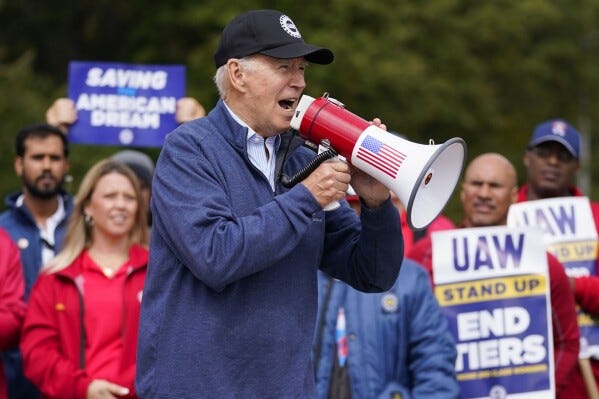Earlier this month, the Biden campaign began a desperate effort to regain the trust of disillusioned Arab-American voters in Michigan. Having thus far failed to straddle an acceptable middle ground and appease both pro-Israel, establishment liberals and pro-Palestine progressives, Biden has isolated the pro-Palestine flank of the party. The intraparty conflict in Michigan is casting a long shadow over Biden's campaign. Without Michigan in his electoral college coalition, Biden's road toward re-election will be markedly steeper.
Biden speaks to UAW workers in Michigan (Credit: AP)
Regardless of what one thinks about the ongoing conflict in Gaza, one must acknowledge that the grand implications of this local squabble over the affairs of a distant nation are somewhat absurd. There is no reason why the fringe opinions of a few thousand Arab-Americans in Dearborn should have such a disproportiona…


